Alaphilippe on Liege-Bastogne-Liege: I've come here to win
"We can't bace our entire strategy around Valverde", says Frenchman
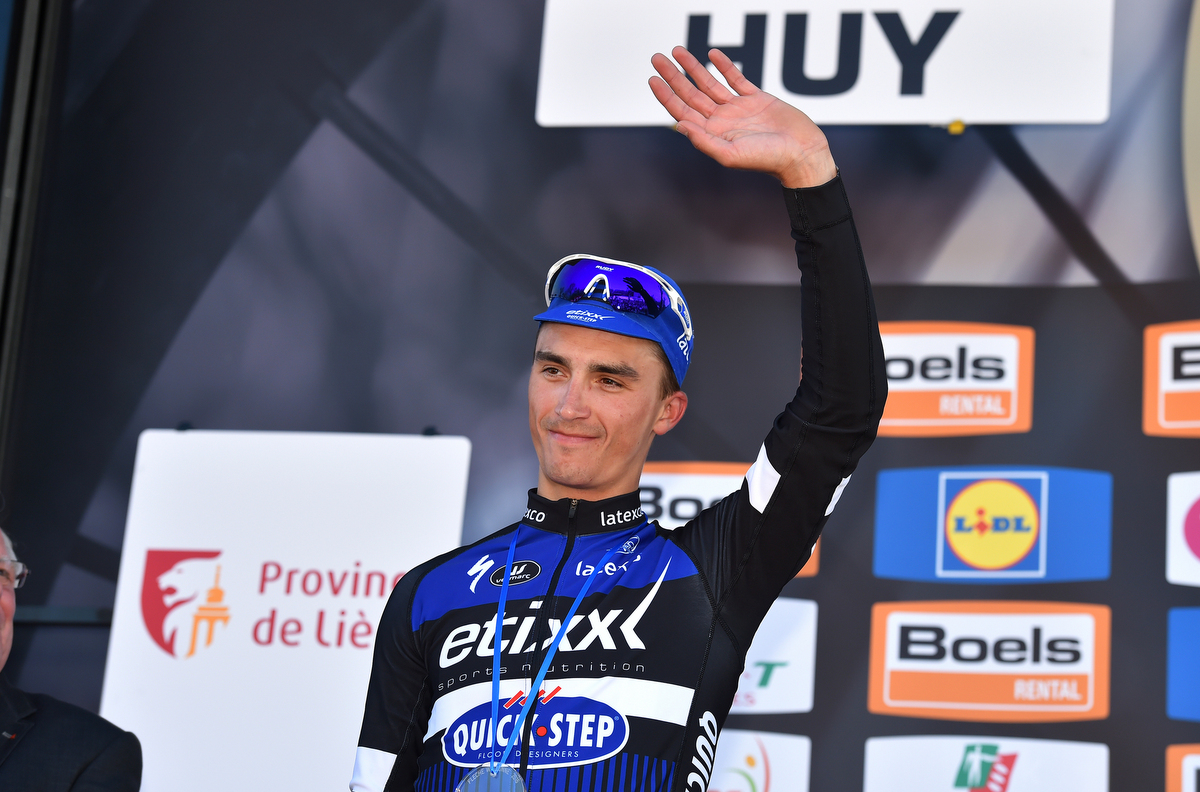
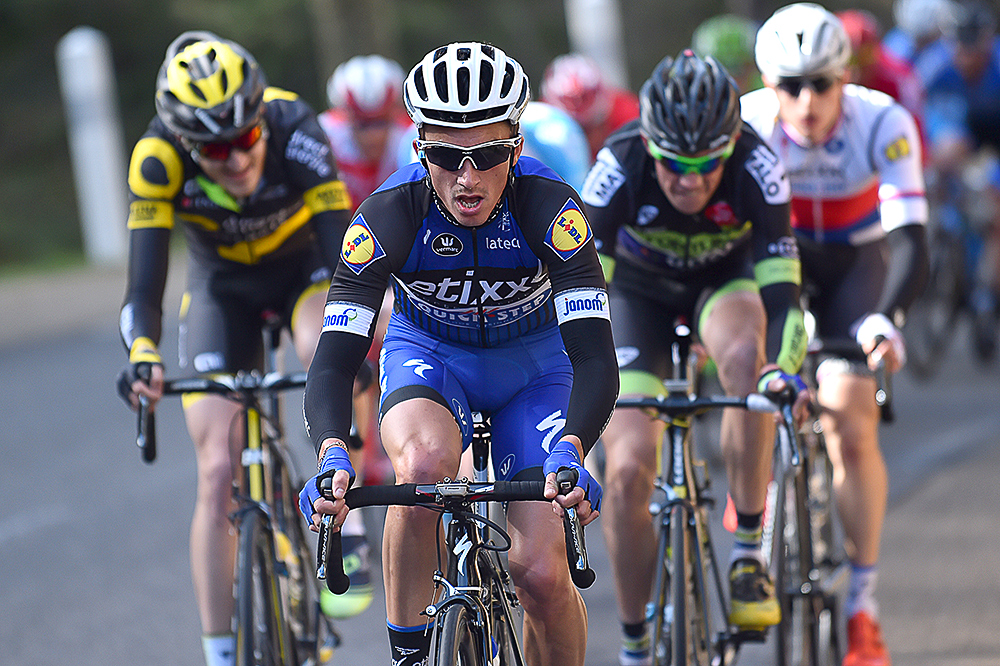
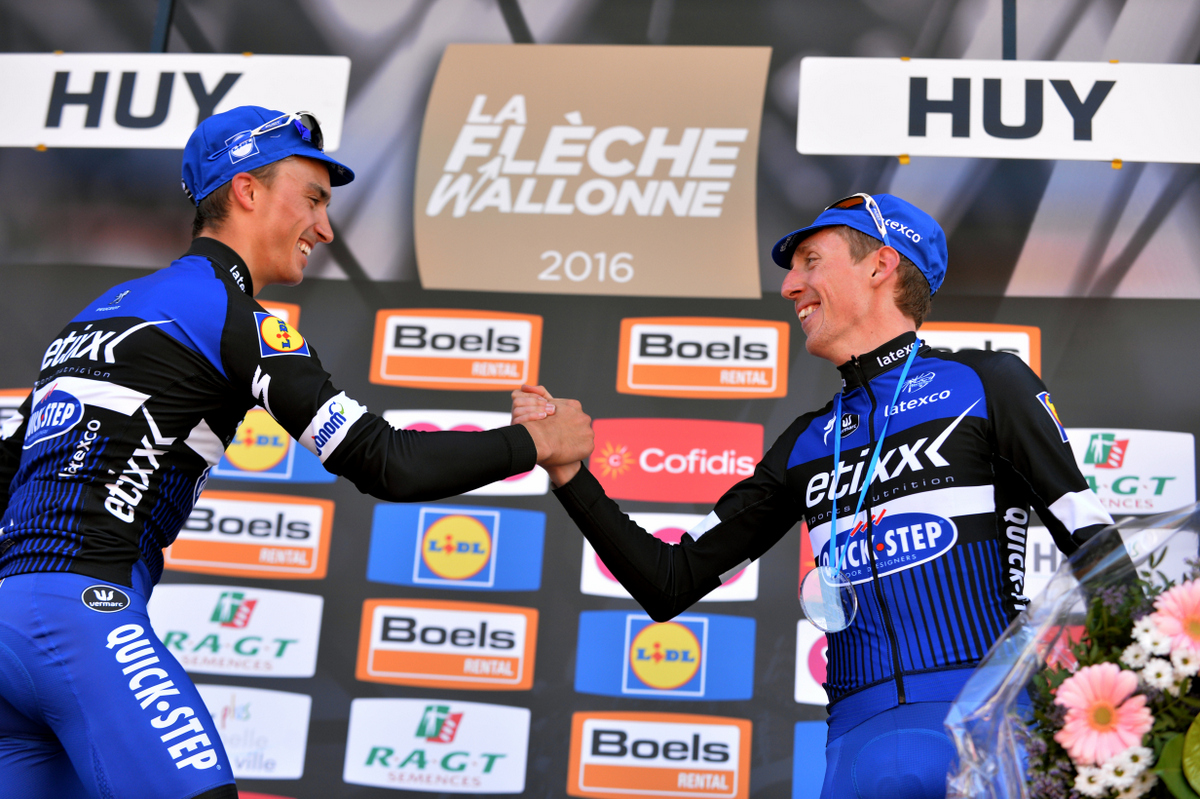
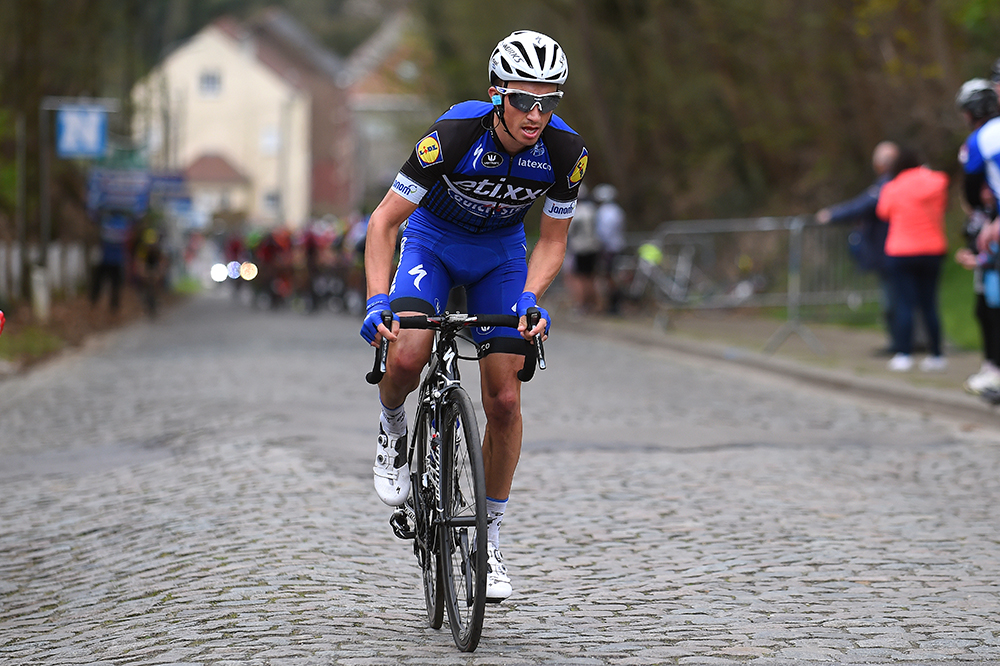
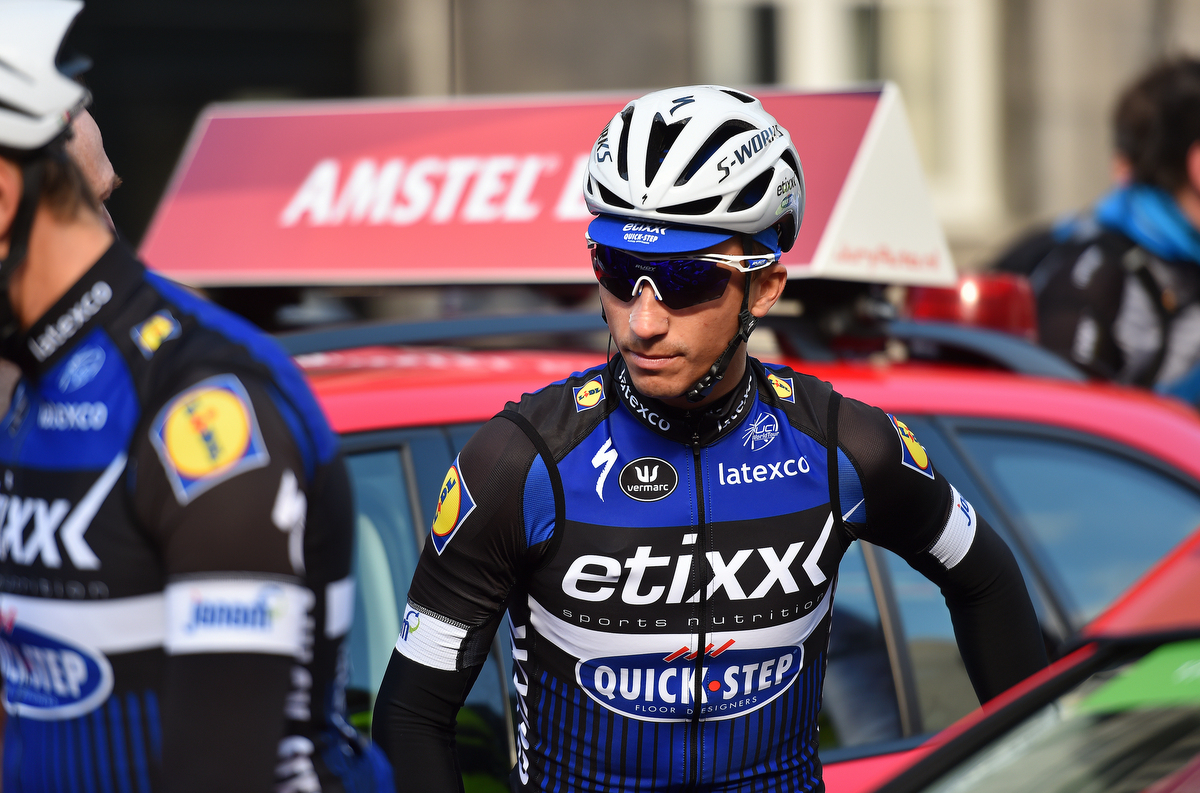
12 months on from his second place in his debut in Liège-Bastogne-Liège, Julian Alaphilippe (Etixx-QuickStep) is deeply satisfied, he says, with the race’s new tougher finale and he’s also looking forward to being a protected rider, together with Dan Martin, from the start of the race - unlike in 2015.
Last year Alaphilippe was initally racing in Liège-Bastogne-Liège specifically to work for then-teammate Michal Kwiatkowski after the Pole had won Amstel Gold. But after Kwiatkowski faded in the closing kilometres, Alaphilippe, having taken second in La Flèche Wallonne, was allowed to fight for his own success.
To say the Frenchman duly impressed would be an understatement, taking second place behind Alejandro Valverde (Movistar) for his second podium in an Ardennes Classics in five days.
Quite apart from having used up a lot of energy working for Kwiatkowski before he could race for himself, what made Alaphilippe’s result even more impressive was that the 22-year-old had had other factors playing against him too.
As a second year pro, there was his lack of experience in racing in top one-day Classics. Alaphilippe had also been caught up in the first of two big crashes just before the Côte de la Redoute and had had to chase hard to get back on.
Then as Etixx-Quick Step’s sole rider in the finale, Alaphilippe shrugged off any sense of pressure and rather than being satisfied with his second place at the line, he banged the handlebars in frustration at edging out Joaquim Rodriguez only to come second to Valverde - a result many other pros, particularly one who was just 22 like Alaphilippe at the time, would have viewed as hugely successful.
Certainly for France, Alaphilippe’s second place was viewed as a breakthrough. After all, it was the best result for the country in La Doyenne since Laurent Jalabert in 1998.
Get The Leadout Newsletter
The latest race content, interviews, features, reviews and expert buying guides, direct to your inbox!
Perhaps the crucial difference between Jalabert in 1998 and Alaphilippe in 2015 is that ‘the Panda’ was at the height of his powers when he finished second at Liège behind Michele Bartoli for the second year running. But Alaphilippe has had a huge margin for further improvement, although this year, too, he will be much more of a marked man in the final.
Certainly the Frenchman is confident of his chances regardless, telling Cyclingnews he relishes Liège’s more difficult finale, with an extra climb, the Côte de la Rue Naniot now included after the Côte de San Nicolas. “The harder the better,” he argued, “I think that can change the way the race will play out, there will be riders who will attack a lot earlier to try to open up a gap before they reach it.
“It’s a difficult ascent, even when I tackled it this morning in training, particularly with the pavé and a very steep second half. Plus we’ve got the climb to Ans straight after. I think it could be a much harder race than last year, specially if this bad weather they’ve forecast finally kicks in.”
In terms of strategy, Alaphilippe says that he and Martin are optimistic at racing a two hander as co-leaders after they placed second and third thanks to their joint strategy in Flèche Wallonne. “We did very well there tactically, we have no regrets because Valverde was simply the strongest. Dan tried to isolate him with a longer effort, then I could hang on, but I couldn’t get past Valverde.”
“Liège will be a very different race, much longer and harder with a very different finale and very different weather, too. We haven’t really decided on what the tactics will be though, we’ll decide closer to the time.”
Speaking to a larger group of reporters, Alaphilippe confirmed, though, that if he waited until the end of the race to launch his move like in Flèche Wallonne, he risked being outgunned by Valverde again.
“What’s clear is we can’t base our entire race around Valverde. I want to give the best of myself without thinking too much about his strategy.”
So could he make an attack earlier in the race? Alaphilippe says he certainly is not ruling it out. “That could be a tactic for me, I don’t know. I’ll see how I’m feeling.”
Having a co-leader, he says, “is great for me. Dan has a very similar range of talents to me, he’s a punchy attacker like me, but he can make a sustained effort when he’s racing in a way that I can’t, and which may well work better in Liège. So we’ll just try to get the best result possible for the team.”
Either way, Alaphilippe has noticed, too, that his new status as a favourite has brought “higher expectations from the team and from the public.” At the same time, his own expectations are much higher, too: “I’ve come here to win, clearly. It’s a race which suits me a lot, I was very happy to get second last year even if I was very frustrated, too, at coming so close to winning. I’ll take things how it comes, but I’ll be disappointed if I can’t go for the win.”
Alaphilippe certainly finds a great deal of inspiration in difficult circumstances. The crash in last year’s race, he says, helped him because having to ride so hard afterwards to regain contact with the back “unblocked something in my legs and I was both more relaxed, and at the same time more concentrated, afterwards, on racing on the front.”
Similarly, coming back from a difficult winter where he was very ill with mononucleosis, he said, motivated him all the more to the point where as his condition improved he would do some extremely long training rides, some over 315 kilometres, in order to stay ahead of the game.
“The longest I’ve done is nine hours and 40 minutes on the bike, but I don’t do that all the time. But I like pushing the limits, I’m like that in my normal life, too, I go over the edge sometimes, and that’s what happens in training, too.”
The one major variable for Sunday is the weather, still forecast on Friday to be snowy and cold. “I’m not scared of bad weather, but that could make the race very difficult for the riders,” he observed.
“I dont’ think anybody likes the idea of racing when it’s five degrees above freezing and snowing, even if it is Liège-Bastogne-Liège.” When it was pointed out that it would not be so bad for him because he was a former cyclo-cross rider and out in all kinds of unfavorable weather, he retorted somewhat tartly that “yes, but a cyclo-cross race lasts one hour, not five like Liège. There’s no comparison.”
Whilst on the subject of extreme weather conditions Alaphilippe said he was well aware that another Frenchman, one Bernard Hinault had won a very snowy edition of Liège back in 1980. “If the forecast for snow continues, I’ll ring him up for some advice on how to handle it,” Alaphilippe joked. But should Alaphilippe finally triumph on Sunday, then as the last Frenchman to win in Liège 36 years ago, Hinault would surely be one of the first to celebrate, too - no matter what kind of weather it is.
Alasdair Fotheringham has been reporting on cycling since 1991. He has covered every Tour de France since 1992 bar one, as well as numerous other bike races of all shapes and sizes, ranging from the Olympic Games in 2008 to the now sadly defunct Subida a Urkiola hill climb in Spain. As well as working for Cyclingnews, he has also written for The Independent, The Guardian, ProCycling, The Express and Reuters.
